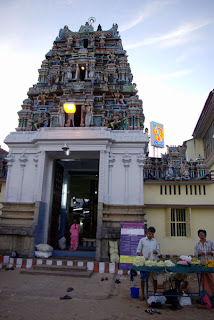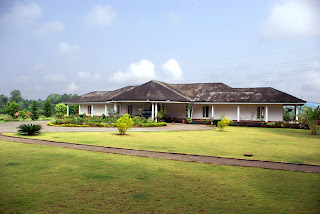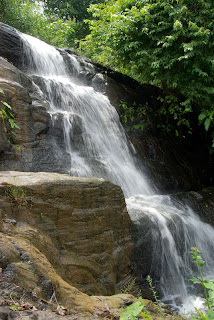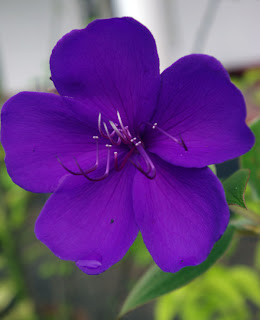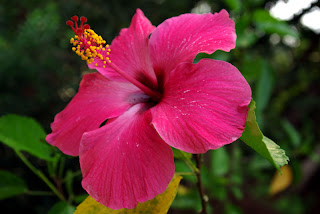
William Allan Joseph Lemos, aka AJ, A, Aj'er, Justine's Bro, etc., jumped through the global portal, otherwise known as modern day air travel, and landed on the other side of the world, onto the subcontinent of India, aka Bharatstan, Hindustan, Indiahhh, Incredible India, etc., to join us for some cultural clashes, travels, and, of course rice, curry, chai, bad beer, and humidity. He has settled right in, despite the 13 or so hour time difference, 5-day delay in leaving, and an 8-hour lay-over in Dubai, aka, Shopping Capital of the Middle East. He has handled his cultural adjustment with grace, being an ever so trustful lad, he has: jumped on the bus;

jostled around in rickshaws;
 eaten with his hands; and even joined us for a meal served on banana leaves placed on the floor of a temple temple ground in Fort Kochi. This meal took place after Justine, aka, Justinah, Spiral, the Foreigner Who Speaks, Malayalam chatted in the local tongue to find out what was going on when we observed lots of well-dressed Keralites flowing into an area behind the historic Dutch Palace in Fort Kochi, and got us all invited in for a meal.
eaten with his hands; and even joined us for a meal served on banana leaves placed on the floor of a temple temple ground in Fort Kochi. This meal took place after Justine, aka, Justinah, Spiral, the Foreigner Who Speaks, Malayalam chatted in the local tongue to find out what was going on when we observed lots of well-dressed Keralites flowing into an area behind the historic Dutch Palace in Fort Kochi, and got us all invited in for a meal.So far he has seemed to enjoy his time thoroughly, says he loves the food, especially the Kerala rice, had a great time in Fort Kochi, and says he all around loves India so far. We will be off to see our British ex-pat retiree friend David for Xmas, drinks, some type of cooked bird, and of course lots of tea. Then we will be heading to the northern most state of Kasaragod for a Theyyam festival. (See more on Theyyam here, http://en.wikipedia.org/wiki/Theyyam.) AJ will get to experience his first India train rides, along with all that comes with them: tea wallahs, beggars, street musicians, overcrowding, and the ever lovely restroom facilities. Below are a few pictures from our trip to the Historic Fort Kochi. Enjoy! Please wish us luck, health, and safety on our travels with the Aj'er.



(More info on the DYFI political party: http://en.wikipedia.org/wiki/Democratic_Youth_Federation_of_India)





